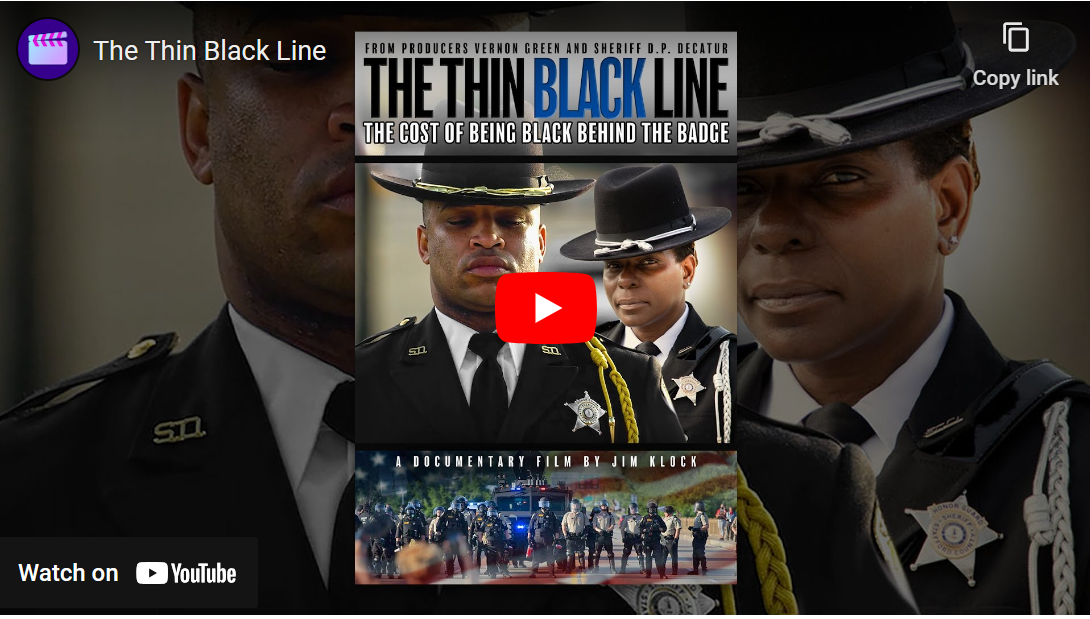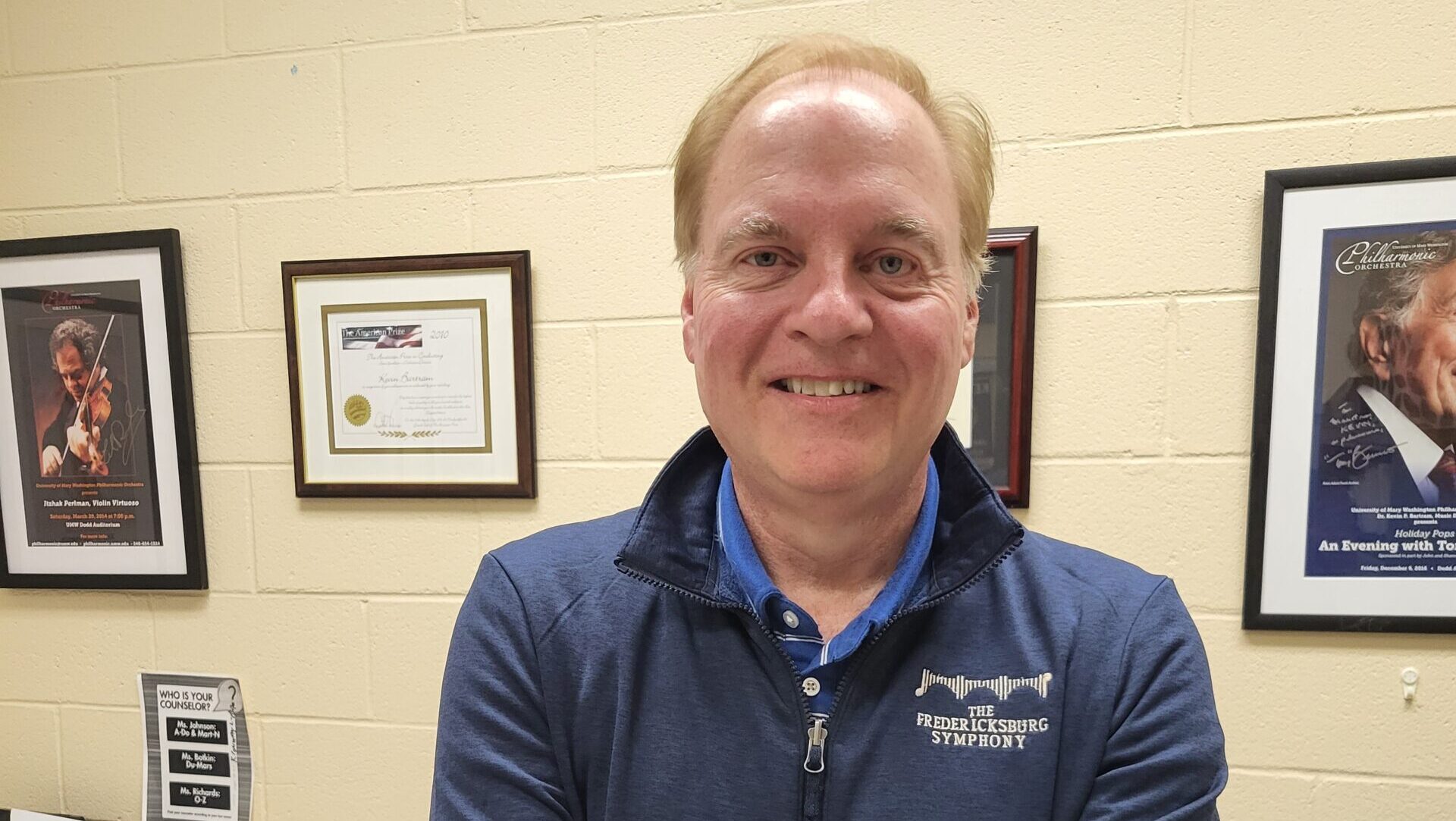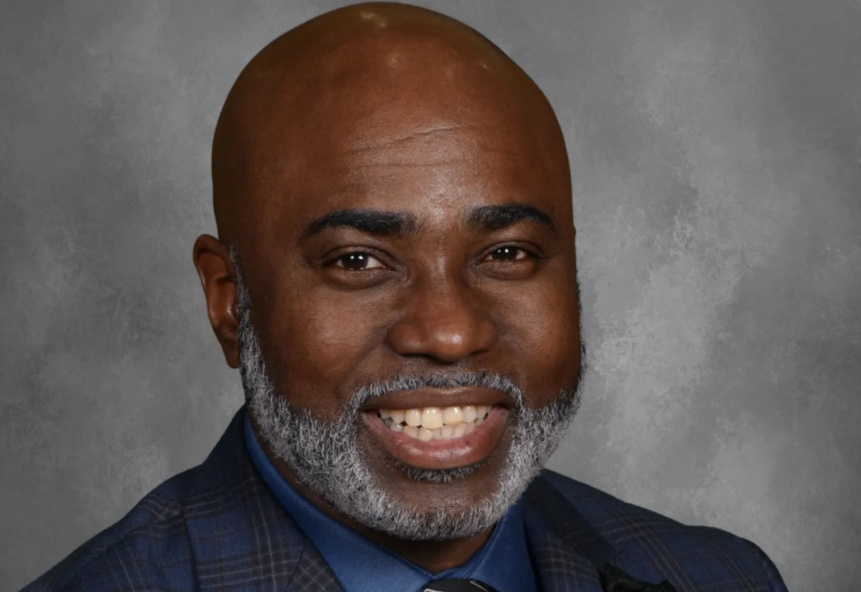
The “Thin Black Line” is a new, independent film that looks at the experience of Black officers through their eyes. And the results are at once humbling and eye-opening.
by Martin Davis
EDITOR-IN-CHIEF
Last week we published a review of a new independent film – “The Thin Black Line” – that explores life as a Black police officer. Reviewed by Theater Critic Dennis Wemm, the film explores the extraordinary crucible that Black police officers find themselves in.
Today, we follow up that review by interviewing two officers who took part in the film – Lieutenant Deuntay Diggs and Captain Lee Peters III. The talk with FXBG Advance’s Editor-in-Chief about the film, and their experience in sitting for the cameras.
FXBG Advance: What, for each of you, do you believe is the biggest take-away people will learn when they watch the film?
Lieutenant Diggs: – When the film was being produced, we were amidst the ‘defund the police’ movement, during which there was a lot of charged conversation about law enforcement targeting and killing minorities. This film will provide people with an inside look at what it’s like to be a minority in law enforcement, why we chose this profession, and what drives us.
Captain Peters: For Black officers, the things that we want for America are the same things we want in law enforcement. To be judged by our merits, and not the bad actions of a few bad actors. We’re fighting the same battles that the nation is fighting at the same time. We simply ask for space to be judged by our own actions.
FXBG Advance: How did taking part in the making of this film change you?
Captain Peters: It proved to be both a therapeutic and a painful experience. There are a lot of things you go through as a minority law-enforcement officer that people will not understand. When you’re one of eight commanders in an area, for example, and you’re the only one of color, it can be hard at times to express what you truly think. Some of these emotions and feelings don’t always have a space in law enforcement.
FXBG Advance: There are many misconceptions about law enforcement. What will people learn about police in general they may not have previously understood when they watch this film? And what, specifically, about Black officers will they learn?
Lieutenant Diggs: People often don’t understand that law enforcement is not one unified body. There are approximately 18,000 police agencies across the country. If there’s an incident of police brutality in another state or jurisdiction, people are quick to assume it’s a representation of policing everywhere. For this reason, law enforcement agencies that have worked hard to build trust and mutual respect through training, communication, and community policing still have to engage with protests, especially in reference to defunding or disbanding the police.
Add to that the reality of being a Black man in law enforcement, where people may automatically associate you with racist tropes, such as being called ‘Uncle Tom’ for wearing the uniform.
Yes, minorities wear a badge and a gun. However, we still have to deal with the challenges that other minorities face in terms of racism, in addition to dealing with being shunned by some in the Black community for wearing the badge.
Captain Lee: A strong second to what the lieutenant said. For my part, we want people to know that we are part of the community and like being part of the community. It’s not us against them. We do it because we love our community. We want people in our community to understand that we live there and work there. Too often, we’re battling what people see of police on tv and in movies.
Being a minority, you catch a lot from people who don’t appreciate you being there, and people who don’t like you being there because of things that have happened in the community.
FXBG Advance: How does the Stafford Sheriff’s Office support you when facing the issues discussed in the film? And what do you hope the department will do in the future?
Lieutenant Diggs: Just allowing us the opportunity to take part in the movie was a courageous step by the Sheriff. It took a lot of trust on his part to allow us to do this.
In my career, I’ve been able to be transparent and bring my authentic self to work. This has given me the opportunity to work with people on many levels and have difficult conversations around racism. Cultural Diversity and Fair and Impartial Policing are two trainings that have also helped break down barriers and misunderstandings during my career.
Captain Lee: Doing the video was a great step. Continuing the conversation and not being afraid to do so is the critical next step. It’s tough for an employer to let you do this. It’s a good step, but there’s always room for improvement.
FXBG Advance: In addition to being officers, you were both recently political candidates. Deuntay, you ran for, and won, a seat on the Stafford Board of Supervisors with the supporting of the Stafford Republicans. Lee, you ran for, but lost, a seat in the General Assembly as a Republican. How has your political alignment added to, or eased, the pressures you feel in your job?
Captain Peters: When you start looking into politics, you get type cast into the best or worst of what a given campaign is. People put you in a category and that’s what they want to see. They can’t see you outside of the realm of a political party.
Being a conservative, a military family, and a law enforcement officer puts you in a different space, and a lot of people just don’t like it. They’re prefer to simply put you into a category and let it go at that.
Lieutenant Diggs: I ran as an independent, and it was shocking for many in the region when I received the Republican endorsement. What has helped me navigate political issues is that I don’t shift my ideology based on who I’m speaking to. My focus is on helping people and solving issues regardless of our differences. I’ve learned to meet people where they are and figure out how to connect.
When I went to my first Republican meeting, I was nervous until I realized that people aren’t as extreme as they seem to be on television. I got some pushback from people on the left. It’s important to be in different spaces and engage on issues. I do not like to be in an echo chamber.
FXBG Advance: What was the most important thing that being in the film did for you?
Captain Peters: One of the most powerful things for me was being the most senior officer in the film and seeing others who were feeling the same way I was. There was a lesson for me in seeing those troops and realizing that they felt the way that I felt.
Lieutenant Diggs: What was interesting for me after watching the movie was seeing the commonality among minorities in law enforcement in terms of how we approach serving our community and how we feel we’re treated.
The common thread is that representation matters. There is comfort both for those who wear the badge and uniform and those who are in the community to be able to see themselves in law enforcement officers who serve and protect. There is also comfort in being able to speak with someone who can relate to your lived experience and might share some of your perspectives. When I watched this video, that was what I got out of it.






What a great interview, thanks for publishing it, and thanks to both for sitting down and speaking frankly.